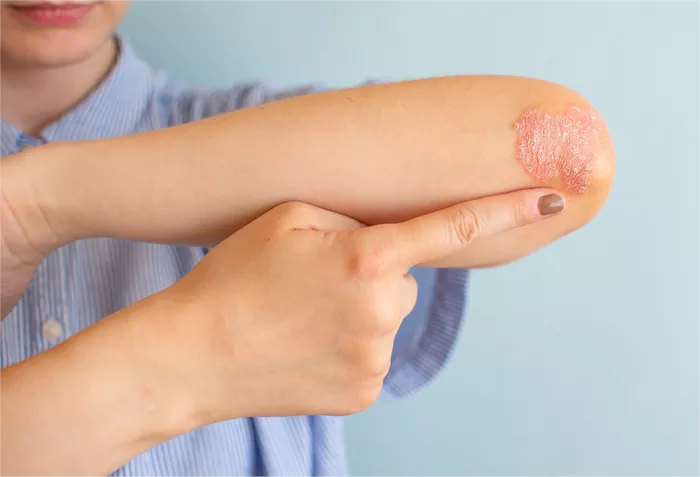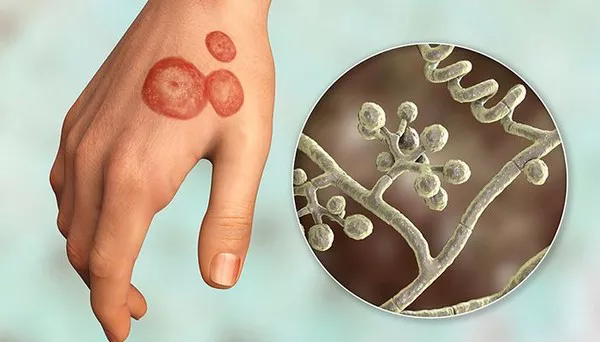Ringworm, despite its name, is not caused by worms but by fungi known as dermatophytes. This fungal infection can affect various parts of the body, including the skin, scalp, and nails. One of the common concerns associated with ringworm, especially when it affects the scalp, is hair loss. In this article, we will delve into the relationship between ringworm and hair fall, exploring how this infection impacts hair health and what can be done to manage it effectively.
What is Ringworm?
Ringworm is a contagious fungal infection that can affect the skin, scalp, and nails. The fungi responsible for ringworm thrive in warm and moist environments and can spread through direct contact with an infected person, animal, or contaminated objects like combs or hats. Despite its name, ringworm has nothing to do with worms; it’s caused by various types of fungi called dermatophytes.
When ringworm affects the skin, it typically causes a red, scaly rash that may be accompanied by itching or discomfort. On the scalp, ringworm can lead to patches of hair loss, which can be particularly distressing.
Understanding Hair Loss Due to Ringworm
When ringworm infects the scalp, it results in a condition known as tinea capitis. Tinea capitis can cause a variety of symptoms, including:
- Scaly Patches: Affected areas of the scalp may develop scaly patches that can be red and inflamed.
- Hair Loss: Perhaps the most concerning symptom, hair loss occurs due to the weakening and breakage of hair shafts at the infected sites.
- Brittle Hair: Hair near the affected areas may become brittle and easily break off.
- Itching: Scalp itching is common and can lead to further irritation and inflammation.
The fungi invade the hair shafts and cause them to become brittle and break off at the scalp’s surface. This results in the characteristic patchy hair loss seen in tinea capitis.
Mechanism of Hair Loss in Ringworm
Hair loss associated with ringworm occurs due to the inflammatory response triggered by the fungal infection. The presence of the fungus in the hair follicles weakens the hair shafts, making them prone to breakage. Additionally, the body’s immune response to the infection can further contribute to hair loss.
The infection can disrupt the normal growth cycle of hair, leading to premature shedding of affected hair. As the fungus progresses, it can also cause scarring and permanent hair loss in severe cases.
Symptoms and Diagnosis
The symptoms of tinea capitis can vary but commonly include:
- Round, scaly patches on the scalp
- Redness and inflammation
- Itching of the scalp
- Brittle hair that breaks easily
- Hair loss, leading to bald patches
Diagnosis of tinea capitis usually involves a thorough examination of the scalp and sometimes microscopic examination of skin scrapings or hair samples to identify the presence of fungi.
Treatment Options
The treatment of tinea capitis typically involves antifungal medications, which can be administered orally or topically depending on the severity of the infection. Oral antifungal medications are often preferred for scalp ringworm due to their ability to reach deep into the hair follicles where the fungus resides.
Commonly prescribed antifungal medications for tinea capitis include griseofulvin, terbinafine, and itraconazole. These medications may need to be taken for several weeks to ensure complete eradication of the fungus.
In addition to antifungal medications, maintaining good scalp hygiene is essential to prevent the spread of infection and promote healing. This includes regular washing of the scalp with antifungal shampoos and avoiding sharing personal items like combs or hats with others.
Preventing Hair Loss and Managing Ringworm
To minimize hair loss associated with ringworm, it is crucial to diagnose and treat the infection promptly. Early intervention can prevent the spread of the fungus and reduce the risk of permanent hair loss.
Here are some tips for preventing and managing ringworm-induced hair loss:
1. Seek Prompt Medical Attention: If you suspect ringworm or notice symptoms such as scalp irritation or hair loss, consult a healthcare professional for accurate diagnosis and appropriate treatment.
2. Use Antifungal Medications: Follow your doctor’s advice regarding the use of antifungal medications. Complete the full course of treatment as prescribed, even if symptoms improve.
3. Practice Good Scalp Hygiene: Wash your scalp regularly with antifungal shampoos to reduce fungal load and prevent reinfection.
4. Avoid Sharing Personal Items: Refrain from sharing combs, brushes, hats, or other personal items that may harbor fungal spores.
5. Maintain a Healthy Diet: A balanced diet rich in vitamins and minerals can promote hair health and support recovery from infection.
Conclusion
Hair loss due to ringworm can be distressing, but with timely intervention and appropriate treatment, it is often reversible. Understanding the relationship between ringworm and hair fall is crucial for effective management of this fungal infection.
If you suspect you or your child has scalp ringworm or are experiencing unexplained hair loss, consult a healthcare professional for diagnosis and treatment. Remember, early detection and treatment can prevent complications and promote faster recovery.
By following medical advice and adopting good hygiene practices, you can effectively manage ringworm and reduce the risk of hair loss associated with this fungal infection.
Related Topics:






















